

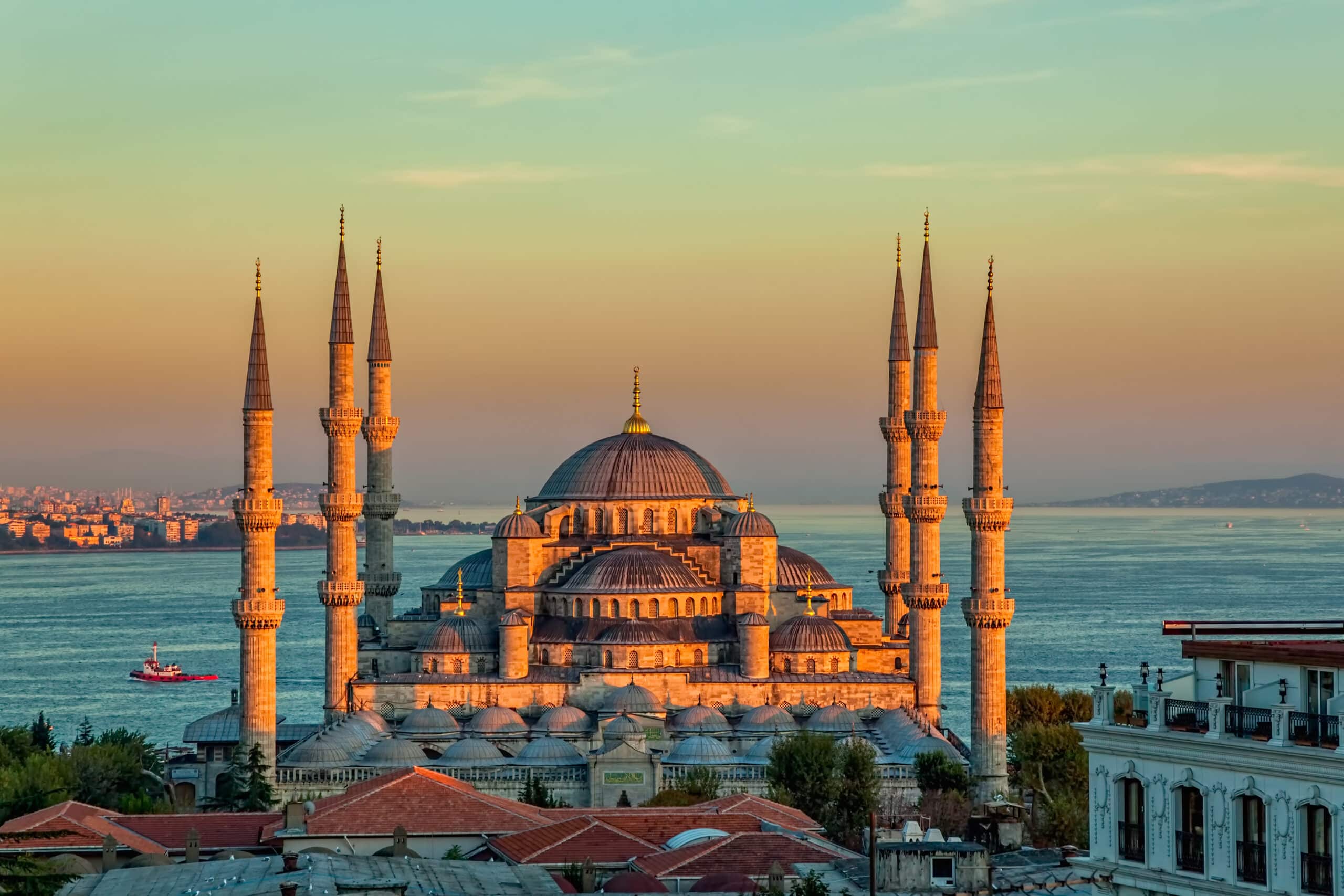
Turkey, a bridge between Europe and Asia, fascinates you with its millennial history, its incredible diversity of landscapes, and its vibrant culture. From the bustling metropolis of Istanbul, with its thousand mosques, to the unique geological formations of Cappadocia, passing by the turquoise beaches of the Mediterranean coast and the grand ancient sites, our stays in Turkey promise wonder and adventure. Explore our offers and let yourself be transported by the magic of Turkey.
A crossroads of civilizations and a colossal historical heritage
Explore the remains of the Roman, Byzantine, and Ottoman empires, ancient sites like Ephesus, and the treasures of Istanbul.
Unique natural landscapes in the world
Admire the fairy chimneys and hot air balloons of Cappadocia, the limestone terraces of Pamukkale, and the Aegean and Mediterranean coasts.
Istanbul, a city between two continents
Discover Hagia Sophia, the Blue Mosque, the Topkapi Palace, the Grand Bazaar, and a unique cosmopolitan atmosphere.
Legendary hospitality and delicious cuisine
Taste kebabs, mezze, baklavas, Turkish delights and enjoy the warm welcome of the Turks.
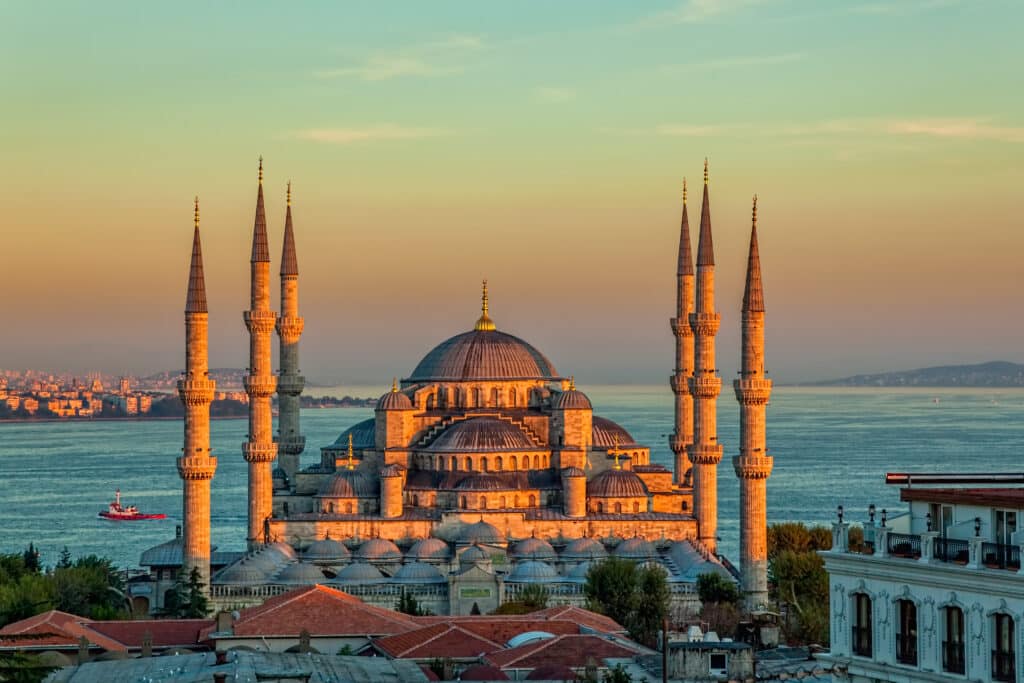
567€
price per person





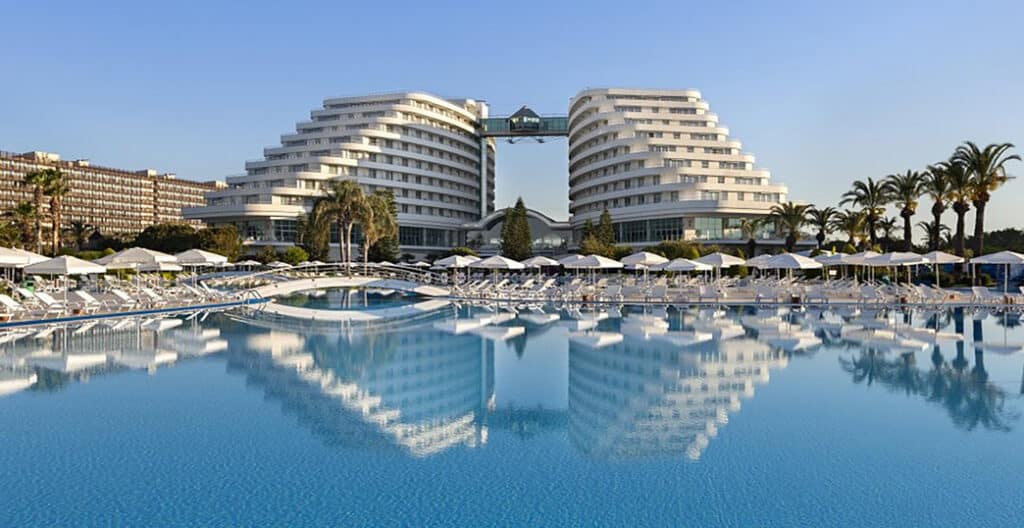
€999
price per person




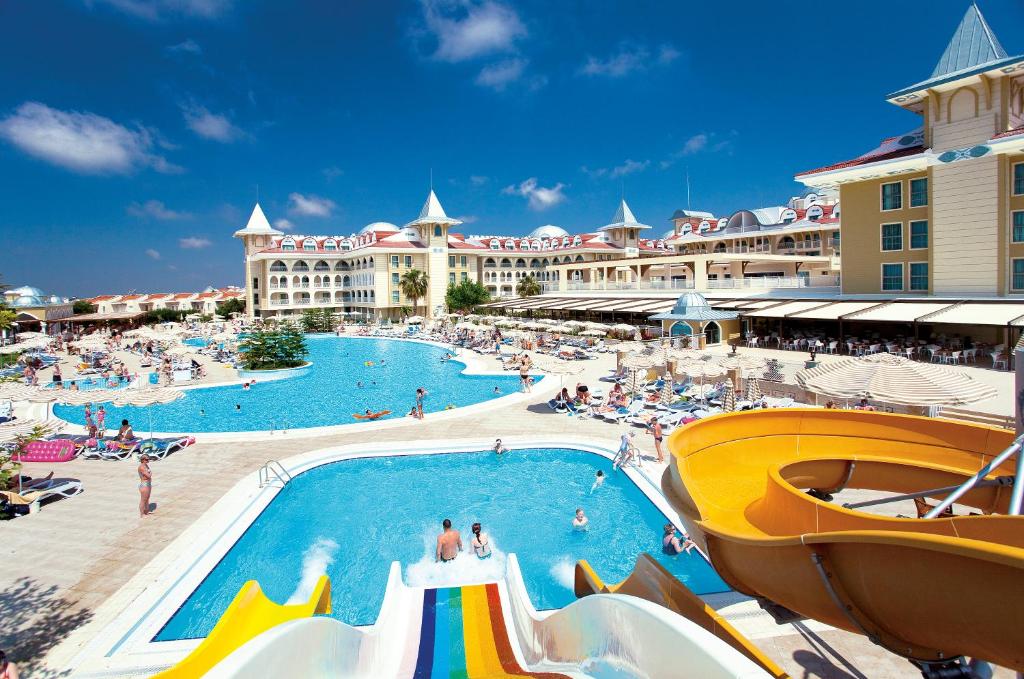
€778
price per person




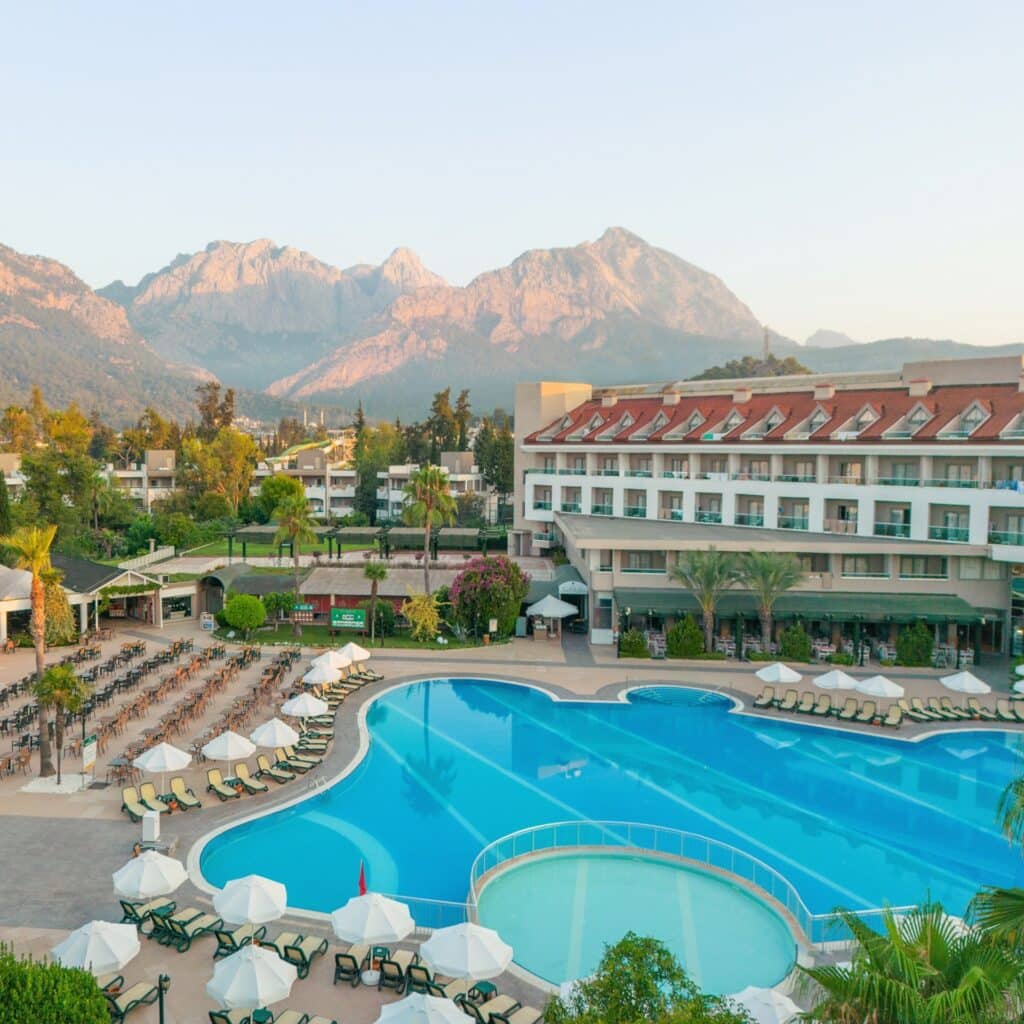
€1,075
price per person



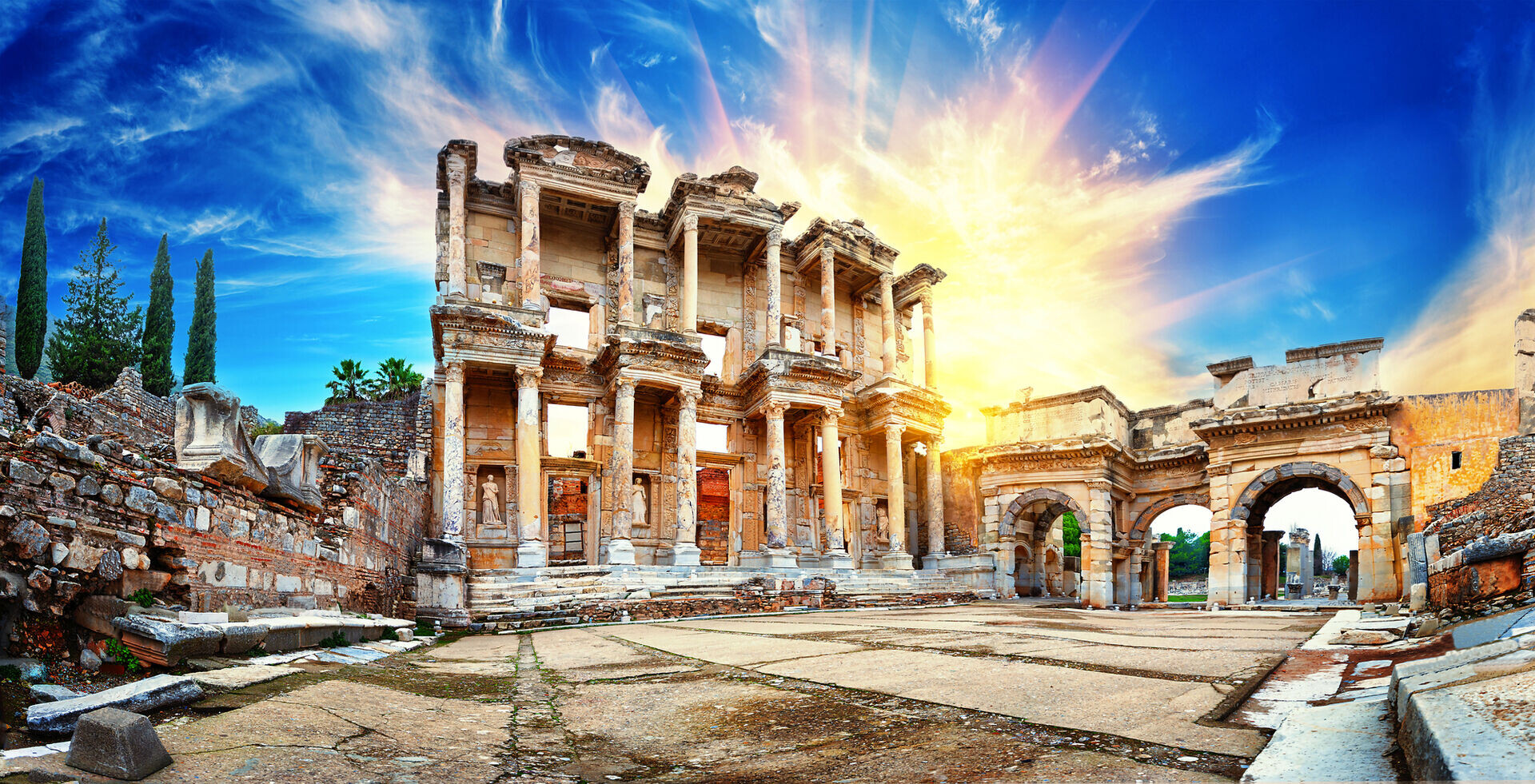
1398€
price per person
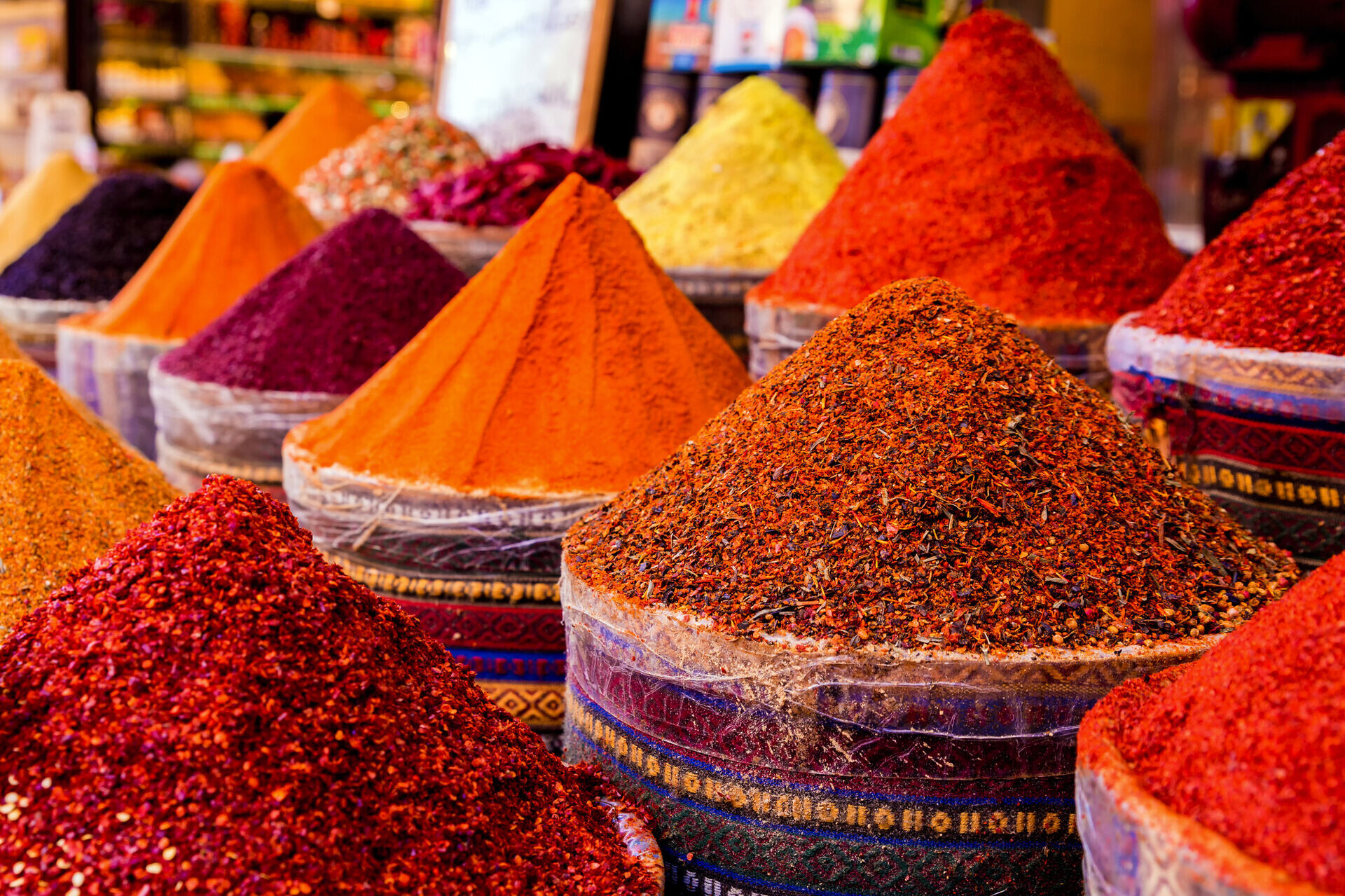
959€
price per person

915€
price per person
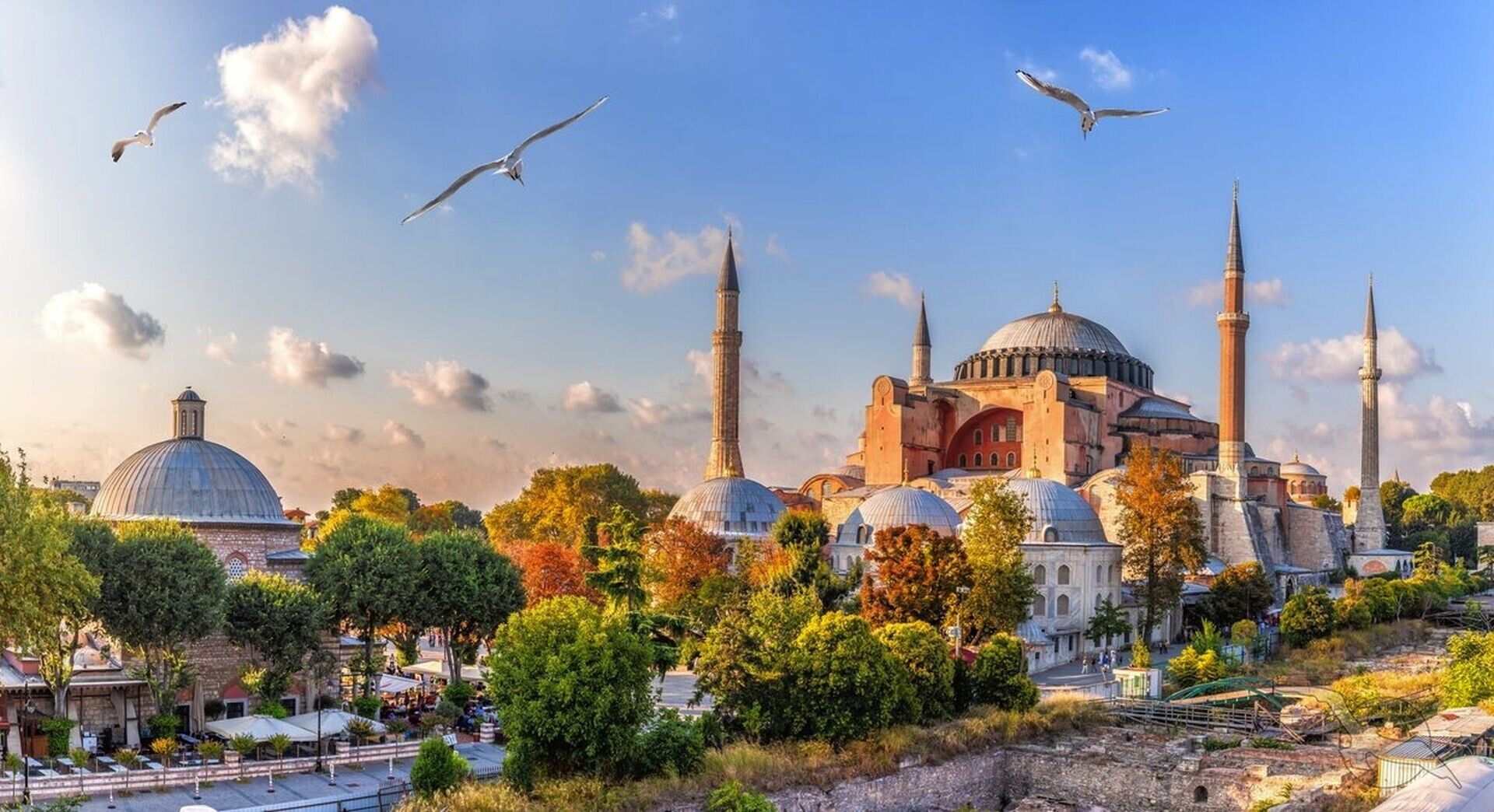
1260€
price per person
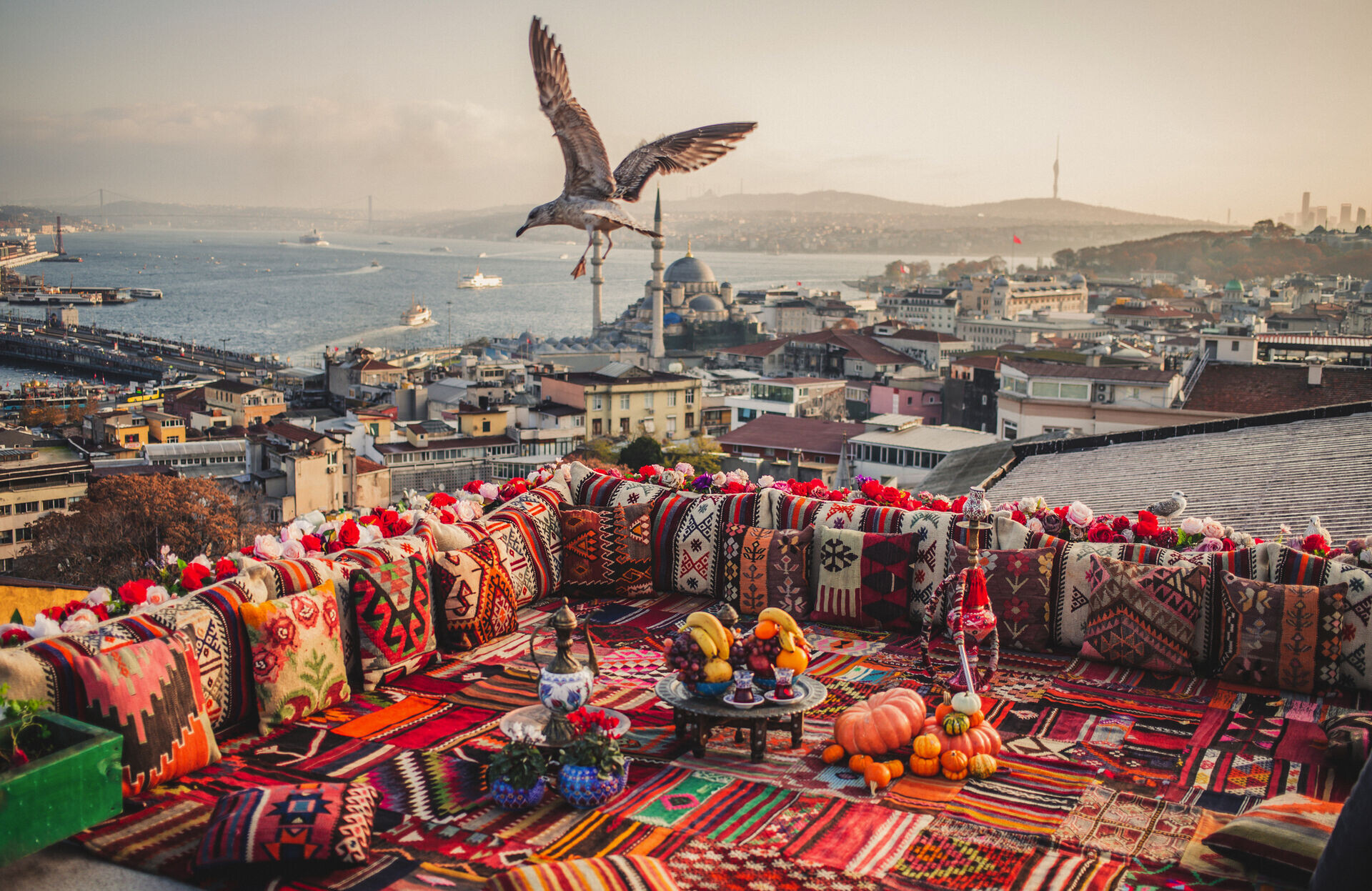
2570€
price per person
Turkey is full of exceptional sites. Istanbul is a must-see with Hagia Sophia, the Blue Mosque, the Topkapi Palace, the Grand Bazaar, and the Spice Market. The Cappadocia, with its lunar landscapes, fairy chimneys, underground cities, and hot air balloon flights, offers an unforgettable experience. Pamukkale, nicknamed the ‘cotton castle,’ charms with its white limestone terraces formed by hot springs. The ancient site ofEphesus, one of the most significant cities of Antiquity, is remarkably preserved. The Mediterranean coast (the ‘Turkish Riviera’) and the Aegean coast offer beautiful beaches, secluded coves, and resorts like Antalya, Bodrum ou Fethiye (Ölüdeniz). For history enthusiasts, the sites of Troy, Pergamon or Mount Nemrut Dağı with its colossal statues are fascinating.
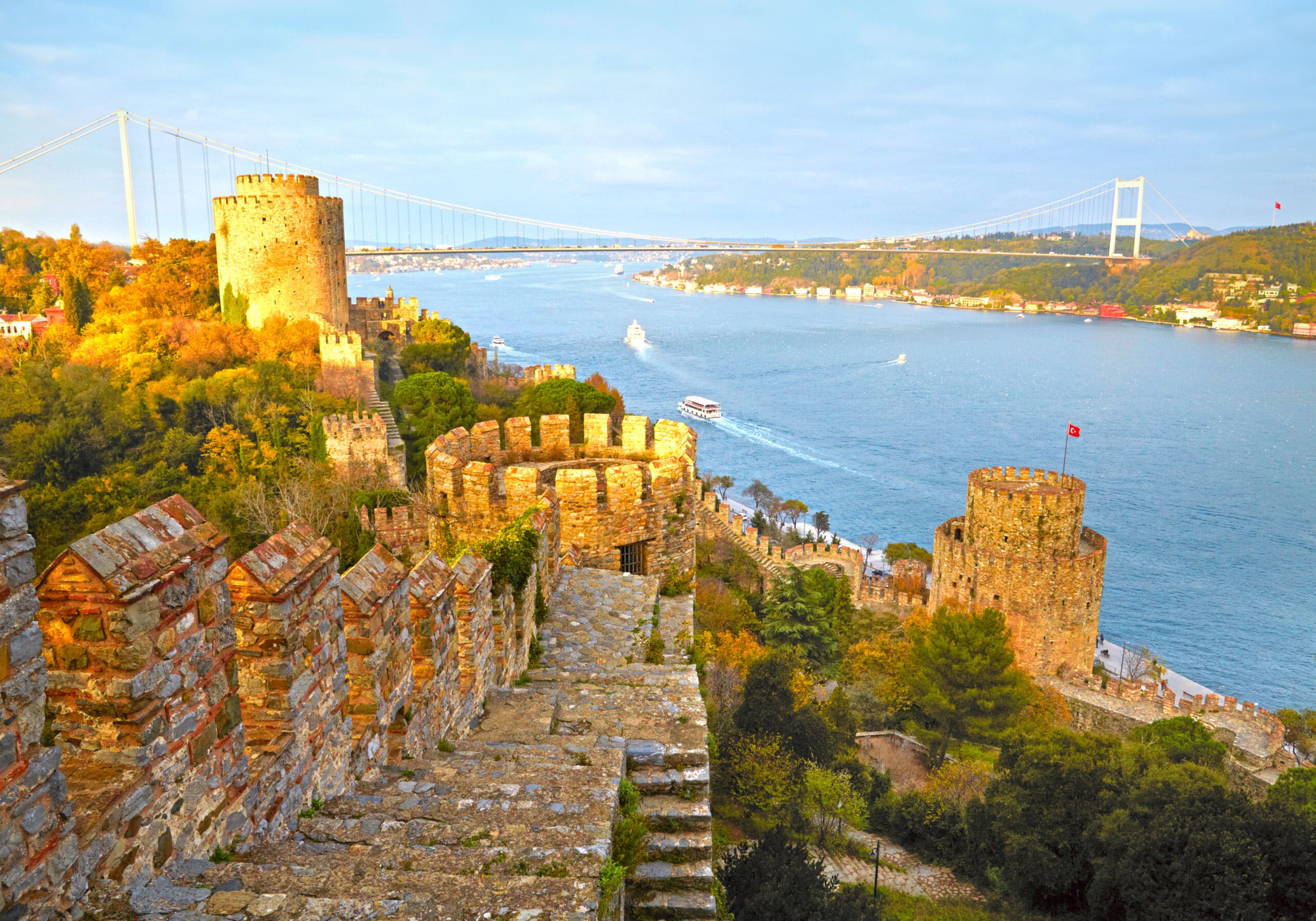
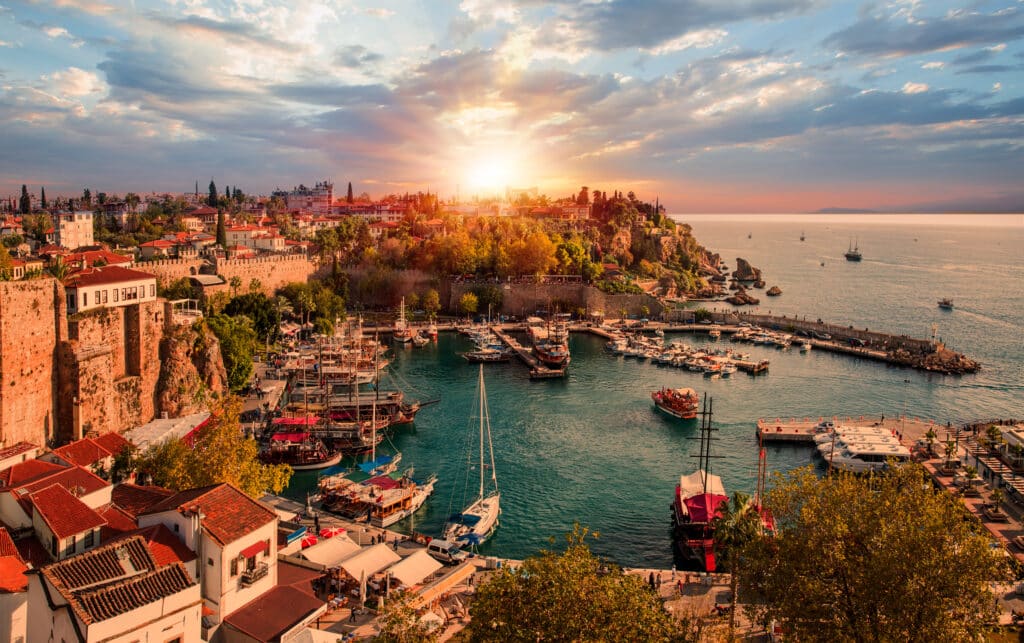
Turkey has a great diversity of climates:
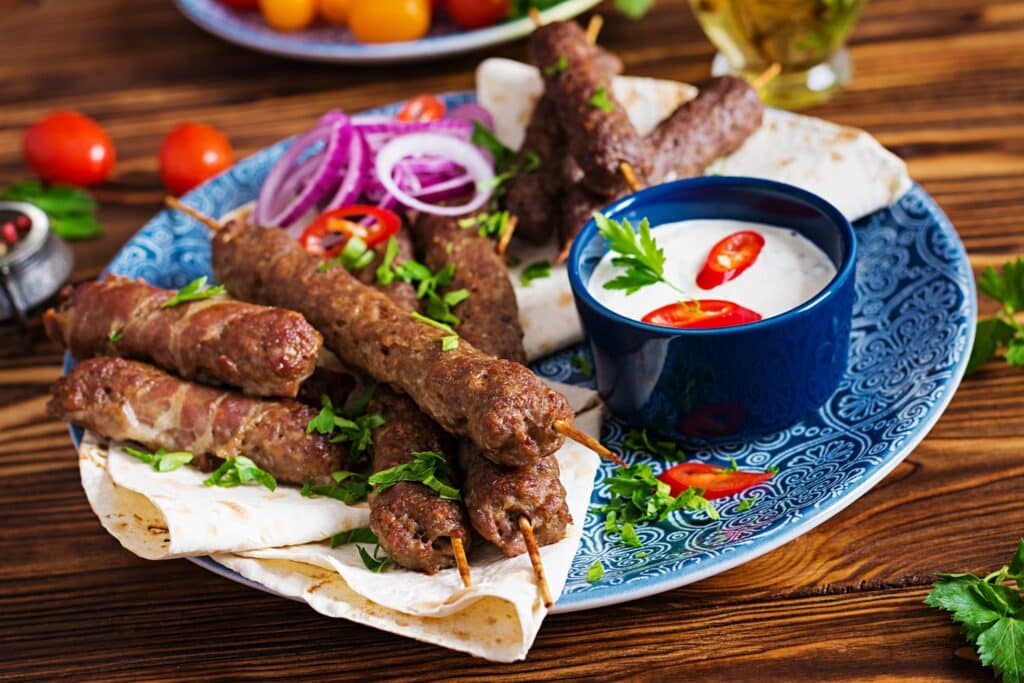
Turkish cuisine is one of the richest and most varied in the world, a heritage from the Ottoman Empire. The kebabs (grilled meat, notably döner kebab) are iconic. The mezze (an assortment of hot and cold appetizers) are perfect to start the meal. Taste the pide (Turkish pizza), the lahmacun (thin flatbread topped with minced meat), the mantı (small dumplings), and the dolma (stuffed vegetables). Vegetables cooked in olive oil (zeytinyağlılar) are delicious. For desserts, the baklavas, the Turkish delights (loukoums) and the künefe are essentials. Turkish tea (çay) and Turkish coffee (kahve) are ubiquitous drinks and an integral part of the culture. Don’t miss tasting local specialties wherever you go.
| Jan | Feb | March | April | Mai | June | July | Aug | Sept | Oct | Nov | Dec | |
|---|---|---|---|---|---|---|---|---|---|---|---|---|
| Our opinion | ||||||||||||
| T° max | 9°C | 9°C | 12°C | 17°C | 22°C | 27°C | 29°C | 29°C | 25°C | 20°C | 15°C | 10°C |
| Rainy days | 13 d | 12 d | 11 d | 9 d | 7 d | 5 d | 3 d | 4 d | 6 d | 10 d | 11 d | 14 d |
| T° sea | 13°C | 13°C | 13°C | 16°C | 16°C | 19°C | 21°C | 22°C | 21°C | 18°C | 16°C | 14°C |
Hagia Sophia in Istanbul was the largest cathedral in the world for nearly a thousand years. Moreover, the character of Saint Nicholas (Santa Claus) was the bishop of Myra, an ancient city now in present-day Turkey (Demre).
The official currency is the Turkish Lira (TRY). The Euro or the US Dollar are sometimes accepted in highly tourist areas for large expenses (hotels, certain shops), but it is generally more advantageous to pay in Turkish lira. Credit cards are widely accepted in cities and tourist areas. It is advisable to have cash in lira for small businesses, bazaars, and local transport. ATMs are plentiful.
The inhabitants of Turkey are called Turks.
The official language is Turkish. English is spoken in tourist areas, but proficiency may be limited outside. Learning a few Turkish words (merhaba: hello, teşekkür ederim: thank you) will be appreciated. Kurdish is also spoken by part of the population.
In Turkey, electrical outlets are type F (Schuko), compatible with type C and E plugs. The standard voltage is 220V-230V and the frequency is 50Hz. French appliances work without an adapter.